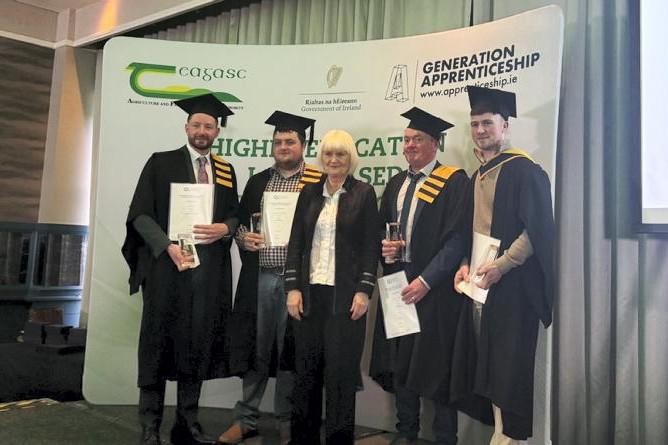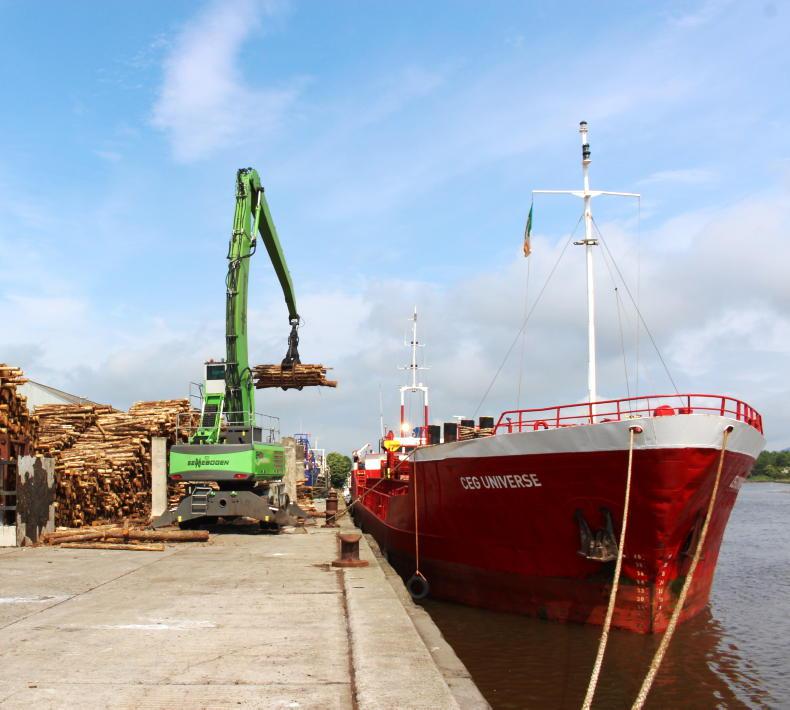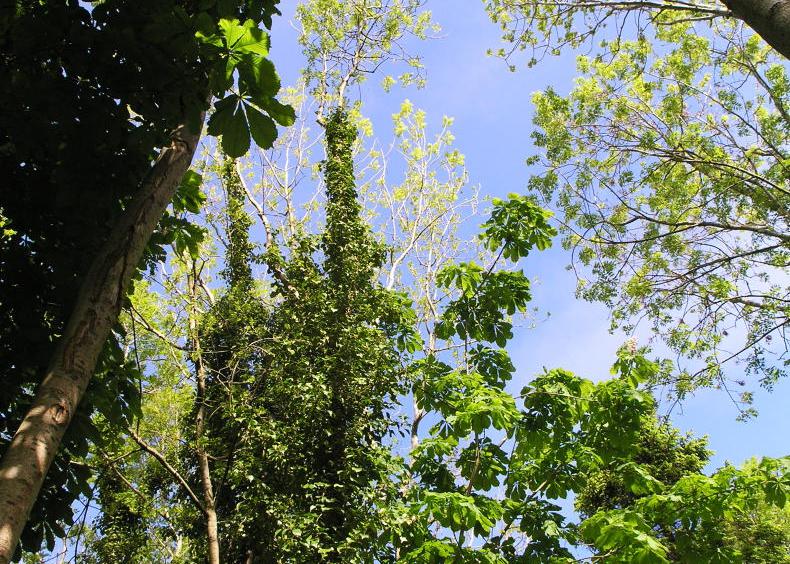The ambitious Forest Strategy 2022-2030 will rely on a small but essential cohort of people to be implemented successfully. These are the foresters: the women and men that will select species and management practices, guide landowners through the forestry schemes and prepare applications, manage planting, forest health, harvesting and everything else in between.
Foresters will plan forest roads, recreation trails, neighbour-woods, native tree seed orchards and the myriad of other tasks involved in developing our forest resource. Foresters will map and measure tree growth, carbon stored, environmental and heritage features, timber produced and all the other parameters society wants to know in increasing detail. In fact, we will largely depend on the forester to measure whether the €1.3 billion in public funding underpinning the strategy, is money well-spent.
The Irish forest sector aims to double annual timber production to eight million cubic metres of roundwood by 2030 while expanding the national forest area by 8000 ha per year. The new proposed forestry programme aims to better integrate trees and forests at farm and landscape level with new agroforestry, riparian forestry and emergent forestry schemes. This programme will now be subject to state aid approval by the European commission. Simultaneously forests are a critical component of measures to address both climate and biodiversity crises. Add in Irish society’s increasing interest in our forests for recreation and wellbeing and the weight of expectations around forestry becomes clear.
While many may doubt the capacity of trees and forests to provide so much, professional foresters are not amongst them. At SETU, forestry students are prepared for the career of sustainably managing multi-functional forests with the Bachelor of Science in Forestry.
Meet the forestry graduates starting their career at this important time in Irish forestry development.
Clonakilty, Co. Cork

Rory Cullinane
Why forestry?
I started selling firewood in secondary school with a friend of mine, and the interest stemmed from there. I started looking into CAO courses in transition year found the Bachelor of Science in Forestry in Waterford Institute of Technology, now ?SETU. I could not see myself in an office setting five days a week so the outdoor nature of the forestry sector really appealed to me.
What is your role now?
I am currently working full-time as a forestry manager with a leading private forestry management company covering Cork, Kerry and Limerick since I finished my degree in Waterford in 2022. I think the industry is very interesting and a day doesn’t go by where I don’t learn something new.
How do you find your programme?
The forestry programme in SETU is second to none. The staff are incredibly enthusiastic about the forestry sector in Ireland, and have backgrounds in forestry management, silvicultural practices, sawmilling and timber technology, and these key areas are all brought to the curriculum. The most enjoyable aspect of the course for me was the practical element, with weekly fieldtrips to a wide range of woodlands ?and wood users, and meeting people in the industry to gain their perspectives of the sector.
What do you think about the future of forestry in Ireland?
I think the forestry sector in Ireland will be very prosperous in the future. Forest planting is a very attractive option for farmers at the moment with the new Forestry Programme for 2023 due to be announced shortly. Personally I think there cannot be enough importance and interest placed on the sector due to its role in tackling the climate and biodiversity crisis. Increasing our forest area is the main measure Irish farmers can implement to offset carbon outputs.
Gorey, Co. Wexford

Lauren Kinsella
How do you find your programme?
My programme at SETU was excellent. It provided the right amount of practical and academic learning blended together. No two modules were the same, and the programme covered a wide range of subjects, providing invaluable knowledge when entering the workforce.
What is your role now?
My role now is Forest Manager for The South/South East of Ireland, with Irish Wood Producers.
What is your career plan?
My career plan in the future is to further my knowledge on important subjects such as sustainability within the forestry sector and forest management practices such as continuous cover forestry to be able to provide the best possible outcome for my clients and the future of forestry in Ireland.
What do you think about the future of forestry in Ireland?
The future of forestry in Ireland is definitely a bright one. I can see the sector growing rapidly within the next few decades with the focus being on sustainability such as sustainable timber supply chains and management practices that enhance environmental protection and carbon sequestration. We will definitely see more continuous cover forestry being implemented in the near future on appropriate site types.
Piltown, Co. Kilkenny

Bob Briscoe
Why Forestry?
In sixth year of secondary school, I knew I wanted to work with something related to the outdoors and came across the forestry course at SETU. It ticked all the boxes for me Also forestry is a fast-growing industry with ever increasing importance so I knew it could be a programme I would enjoy, with the potential to expand into a rewarding career.
How do you find your programme?
While there can be a large project workload at times, it is offset by the fieldtrips every week allowing students to gain practical and technical skills in forestry. Overall, I think the course is well balanced between in-class and outdoor learning. The lecturers in the course are definitely there to support students and encourage them to progress through the entire course.
What stage are you at now?
I am currently in my fourth year, taking the Level 8 BSc in Land Management in Forestry after completing my three years on the Level 7 BSc in Forestry. I am also working, while studying, at Euroforest Ireland as part of the forestry application team. This is my first job as a qualified forester. My current job allows me to gain plenty of professional knowledge from an experienced forestry team who are very willing to help and answer any questions I might have.
Read more
CAO: 18% increase in students looking to study agriculture
“We just had to improvise, adapt and overcome.”
The ambitious Forest Strategy 2022-2030 will rely on a small but essential cohort of people to be implemented successfully. These are the foresters: the women and men that will select species and management practices, guide landowners through the forestry schemes and prepare applications, manage planting, forest health, harvesting and everything else in between.
Foresters will plan forest roads, recreation trails, neighbour-woods, native tree seed orchards and the myriad of other tasks involved in developing our forest resource. Foresters will map and measure tree growth, carbon stored, environmental and heritage features, timber produced and all the other parameters society wants to know in increasing detail. In fact, we will largely depend on the forester to measure whether the €1.3 billion in public funding underpinning the strategy, is money well-spent.
The Irish forest sector aims to double annual timber production to eight million cubic metres of roundwood by 2030 while expanding the national forest area by 8000 ha per year. The new proposed forestry programme aims to better integrate trees and forests at farm and landscape level with new agroforestry, riparian forestry and emergent forestry schemes. This programme will now be subject to state aid approval by the European commission. Simultaneously forests are a critical component of measures to address both climate and biodiversity crises. Add in Irish society’s increasing interest in our forests for recreation and wellbeing and the weight of expectations around forestry becomes clear.
While many may doubt the capacity of trees and forests to provide so much, professional foresters are not amongst them. At SETU, forestry students are prepared for the career of sustainably managing multi-functional forests with the Bachelor of Science in Forestry.
Meet the forestry graduates starting their career at this important time in Irish forestry development.
Clonakilty, Co. Cork

Rory Cullinane
Why forestry?
I started selling firewood in secondary school with a friend of mine, and the interest stemmed from there. I started looking into CAO courses in transition year found the Bachelor of Science in Forestry in Waterford Institute of Technology, now ?SETU. I could not see myself in an office setting five days a week so the outdoor nature of the forestry sector really appealed to me.
What is your role now?
I am currently working full-time as a forestry manager with a leading private forestry management company covering Cork, Kerry and Limerick since I finished my degree in Waterford in 2022. I think the industry is very interesting and a day doesn’t go by where I don’t learn something new.
How do you find your programme?
The forestry programme in SETU is second to none. The staff are incredibly enthusiastic about the forestry sector in Ireland, and have backgrounds in forestry management, silvicultural practices, sawmilling and timber technology, and these key areas are all brought to the curriculum. The most enjoyable aspect of the course for me was the practical element, with weekly fieldtrips to a wide range of woodlands ?and wood users, and meeting people in the industry to gain their perspectives of the sector.
What do you think about the future of forestry in Ireland?
I think the forestry sector in Ireland will be very prosperous in the future. Forest planting is a very attractive option for farmers at the moment with the new Forestry Programme for 2023 due to be announced shortly. Personally I think there cannot be enough importance and interest placed on the sector due to its role in tackling the climate and biodiversity crisis. Increasing our forest area is the main measure Irish farmers can implement to offset carbon outputs.
Gorey, Co. Wexford

Lauren Kinsella
How do you find your programme?
My programme at SETU was excellent. It provided the right amount of practical and academic learning blended together. No two modules were the same, and the programme covered a wide range of subjects, providing invaluable knowledge when entering the workforce.
What is your role now?
My role now is Forest Manager for The South/South East of Ireland, with Irish Wood Producers.
What is your career plan?
My career plan in the future is to further my knowledge on important subjects such as sustainability within the forestry sector and forest management practices such as continuous cover forestry to be able to provide the best possible outcome for my clients and the future of forestry in Ireland.
What do you think about the future of forestry in Ireland?
The future of forestry in Ireland is definitely a bright one. I can see the sector growing rapidly within the next few decades with the focus being on sustainability such as sustainable timber supply chains and management practices that enhance environmental protection and carbon sequestration. We will definitely see more continuous cover forestry being implemented in the near future on appropriate site types.
Piltown, Co. Kilkenny

Bob Briscoe
Why Forestry?
In sixth year of secondary school, I knew I wanted to work with something related to the outdoors and came across the forestry course at SETU. It ticked all the boxes for me Also forestry is a fast-growing industry with ever increasing importance so I knew it could be a programme I would enjoy, with the potential to expand into a rewarding career.
How do you find your programme?
While there can be a large project workload at times, it is offset by the fieldtrips every week allowing students to gain practical and technical skills in forestry. Overall, I think the course is well balanced between in-class and outdoor learning. The lecturers in the course are definitely there to support students and encourage them to progress through the entire course.
What stage are you at now?
I am currently in my fourth year, taking the Level 8 BSc in Land Management in Forestry after completing my three years on the Level 7 BSc in Forestry. I am also working, while studying, at Euroforest Ireland as part of the forestry application team. This is my first job as a qualified forester. My current job allows me to gain plenty of professional knowledge from an experienced forestry team who are very willing to help and answer any questions I might have.
Read more
CAO: 18% increase in students looking to study agriculture
“We just had to improvise, adapt and overcome.”












SHARING OPTIONS